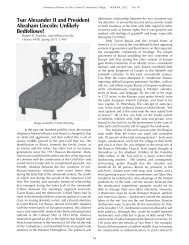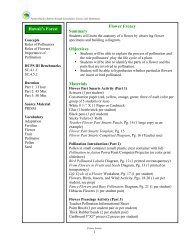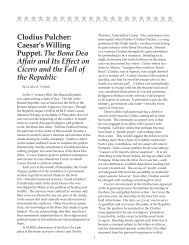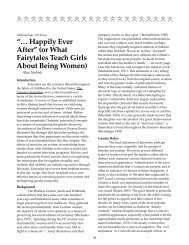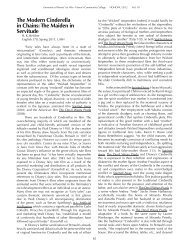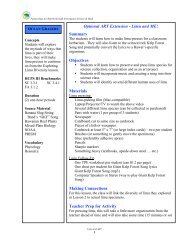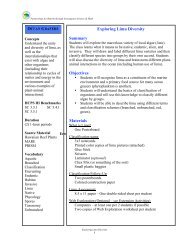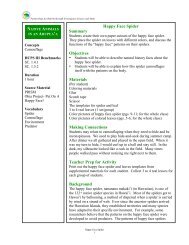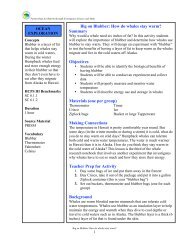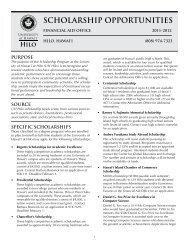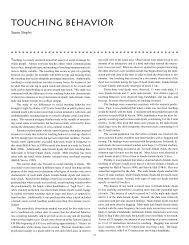A JOURNAL OF ACADEMIC WRITING VOLUME 8
A JOURNAL OF ACADEMIC WRITING VOLUME 8
A JOURNAL OF ACADEMIC WRITING VOLUME 8
Create successful ePaper yourself
Turn your PDF publications into a flip-book with our unique Google optimized e-Paper software.
Who is the Buddha? Is he a divine being or merely a human<br />
being in the eyes of the Buddhists?<br />
These questions are not clear-cut, black or white:<br />
Historically speaking, the Buddha is simply the founder of the<br />
Dharma and the Sangha if indeed such a singular man existed.<br />
What made the Buddha the “Awakened One” and significant<br />
among his peers was his enlightenment. What may help to<br />
answer the above questions is to investigate how this act of<br />
awakening or enlightenment transforms the person from an<br />
historical perspective. The question is then: did the Buddha’s<br />
enlightenment transform him into the divine, or was he just<br />
happy?<br />
Stories abound in the Pali canon and the later Mahayana<br />
sutras of the Buddha’s superhuman abilities. The Jataka stories<br />
recount the previous lives of the Buddha as a bodhisattva<br />
performing miraculous deeds out of his compassion and love for<br />
all living beings. Other later sutras describe in great poetic detail<br />
the realms of the Celestial Buddhas, incalculable in number<br />
and unsurpassed in bliss and beauty. The Buddhist cosmologies<br />
of both Hinayana and Mahayana are full of all kinds of beings:<br />
gods, devas, humans, animals, ghosts, and demons. The<br />
Buddhas, above all, are held in the highest esteem by all beings<br />
and possess all the qualities of perfect wisdom and compassion.<br />
Many of these descriptions and stories of the Buddha and<br />
the universe are fantastical, and it is unclear to what degree<br />
they were taken literally by Buddhists. Two things are clear<br />
about these stories: they were often written with the purpose<br />
of explaining a particular moral or ethical discipline, and they<br />
often contained explanations of the benefits one receives by<br />
proclaiming to others the message of the particular text.<br />
Alternatively, there are disciplines and schools of Buddhist<br />
thought that express no interest whatsoever in deifying the<br />
12 - HOHONU Volume 8 2010<br />
Buddha. First note that Shakyamuni, when asked about<br />
the existence of God, remained silent. Nagarjuna and the<br />
Madhyamika, in short, “do not assert that the existence of God<br />
is false or doubtful, but that God’s existence as the creator of<br />
the world is unintelligible,” and no special attention is given to<br />
the Buddha as important (90). Zen Buddhism takes this last<br />
statement to its end by answering the question, “who is the<br />
Buddha?” with “Three pounds of flax.” The Master Lin Chi is<br />
known for saying, “If you meet the Buddha, kill the Buddha. If<br />
you meet the Patriarch, kill the Patriarch.” This is, of course, not<br />
to be taken literally but it is to aid the student in eradicating<br />
false views of external independence.<br />
In sum, the Buddha is universally accepted as at least the<br />
historical founder of the movement. After his parinirvana nearly<br />
every school developed its own interpretation of his importance<br />
in their practice. Through the history of Buddhism his<br />
deification cannot be deemed insignificant, and the true reality<br />
of his being a divine being or merely a gifted human is left to<br />
the discretion of each individual Buddhist.<br />
Work Cited<br />
Cheng, Hsueh-li. Empty Logic: Madhyamika Buddhism from<br />
Chinese Sources. Delhi, India, 1991.<br />
*These three essays were submitted as an exam; a list of eight<br />
questions were posed, of which the students selected three<br />
questions to discuss and submit for grading.



